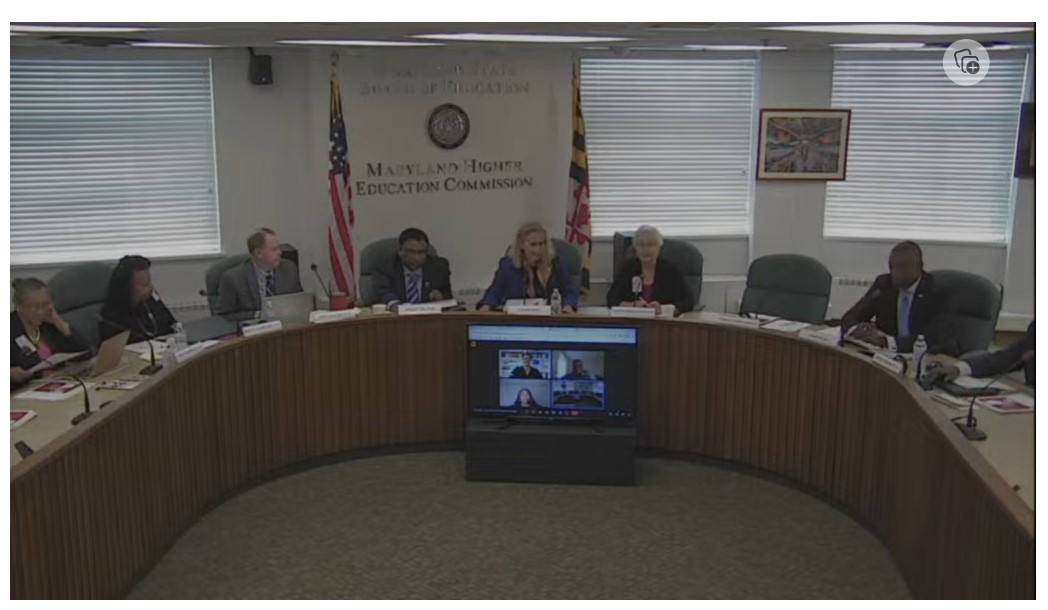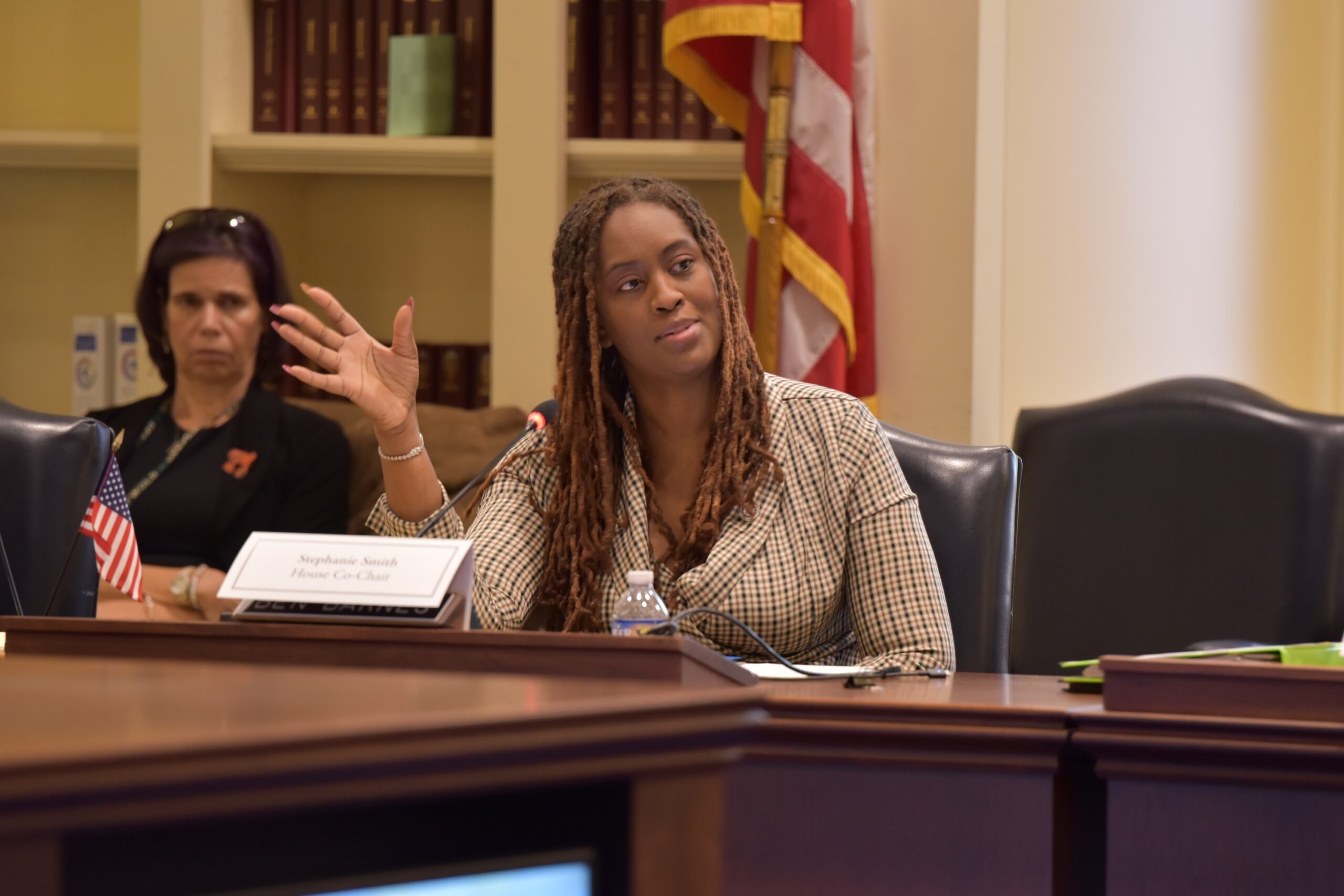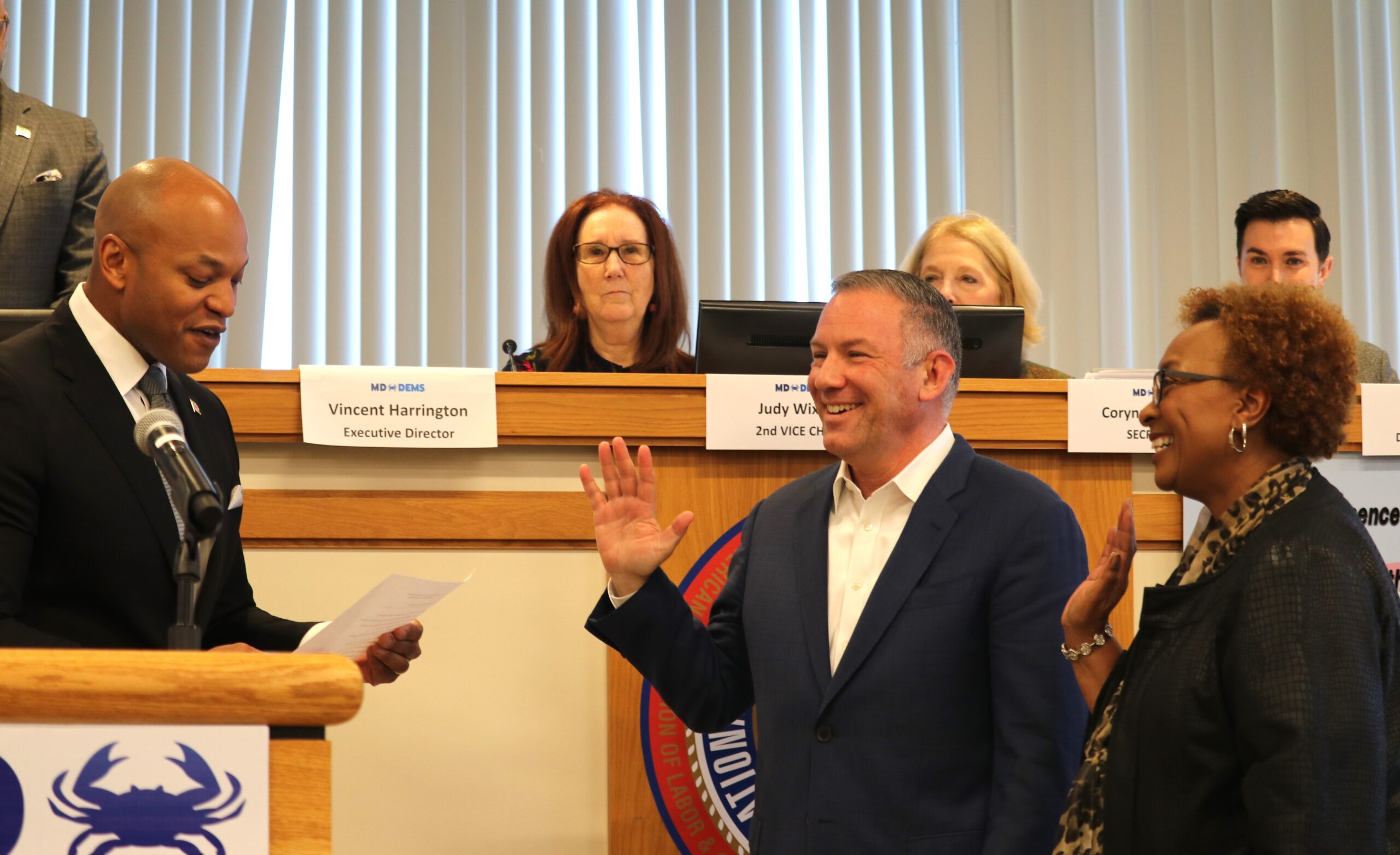Maryland Higher Education Commission denies two physical therapy programs from Johns Hopkins, Stevenson universities

The Maryland Higher Education Commission has denied physical therapy doctoral program proposals from Johns Hopkins and Stevenson universities, according to decision letters sent to the presidents of both schools.
The two decision letters, received around 5:30 p.m. Thursday and written by commission Chair Catherine “Cassie” Motz, state that the majority of the commissioners voted against the proposals because they are “unreasonably duplicative of existing DPT doctor of physical therapy programs in Maryland and will cause demonstrable harm.”
The votes go against commission staff recommendations to approve both program proposals, which they concluded would help meet a need for more physical therapists in Maryland.
In part of their decision, according to a letter on the Johns Hopkins University (JHU) plan, “the Commissioners found that UMB and UMES were correct in stating that Maryland Department of Labor data must be considered in concert with other data and that UMB made a credible argument that the region currently has a surplus of licensed physical therapists, and not a significant shortage.”
“The decision of the Commission in this matter is final and not subject to further review,” Motz wrote in both letters.
Stevenson spokesperson John Buettner said in an email the school appreciates the opportunity to present its perspectives to the commission.
“While we had hoped for a different outcome, we respect the Commission’s decision,” he said. “Going forward, we will continue to work with our higher education colleagues throughout the state to support Maryland’s students.”
An official from Johns Hopkins universities didn’t immediately respond to an email for comment Thursday evening.
The Maryland HBCU Advocates are pleased with the commission’s decision that ensures the current program at the University of Maryland Eastern Shore, one of the state’s four historically Black colleges and universities, isn’t duplicated.
“The action taken by the nearly new Commission speaks well of their interpretation of the MHEC regulations,” according to the group’s statement emailed Thursday night. “The MHEC Commissioners recognized demonstrable harm could come to UMES if an immense, world renowned, private university such as Johns Hopkins University or Stevenson University is granted the authority to duplicate the PhD in Physical Therapy Program held at UMES.”
Unlike previous written decisions after review meetings dating back to 2018 that never stated the actual vote, these two letters note who voted in favor or against an academic proposal and summarize the rationale for the decision.
During a Sept. 13 review meeting on Stevenson’s proposal, Motz said the commission’s program approval process is “need of reform.”
Thursday’s letters were also addressed to the presidents at the University of Maryland Eastern Shore (UMES) and the University of Baltimore (UMB) because they opposed the proposals from Johns Hopkins and Stevenson universities. UMES and UMB have similar physical therapy doctoral programs at their schools.
Because the commission currently has 11 members, at least six votes were needed to approve or reject the proposals, according to Motz’s letter. The board is supposed to have 12 members, but a vacancy remains after a commissioner resigned this summer.
Six commissioners voted against the Johns Hopkins plan after they went into a closed-door session that followed a Sept. 7 review meeting. Those board members are Chike Aguh, Mickey Burnim, Charlene Dukes, Cierra Robinson, Ray Serrano, and Sheila Thompson.
A spokesperson for Gov. Wes Moore (D) said in an email Friday morning that Robinson was appointed July 26 as a student commissioner to replace Tanya Johnson.
“Tanya Johnson’s full-time employment with Johns Hopkins made her ineligible to serve on the commission per Maryland statute,” the spokesperson, Carter Elliott, said.
Motz and board member Janet Warmock voted in favor of the commission’s staff recommendation, which was based on a letter written by Acting Secretary of Higher Education Sanjay Rai.
“The Commission minority believed JHU’s guarantee of clinical placements in its own health system for all students in its proposed DPT program would greatly mitigate harm to the state’s existing DPT programs,” Motz said in her letter.
“The minority also believed that JHU would attract students from out of state and would boost Maryland’s ability to be a leader in the physical therapy field, a field where neighboring states like Pennsylvania and Virginia have a market advantage, with 21 and 10 DPT programs, respectively,” Motz wrote.
However, officials from the opposing schools believe the Sept. 7 review meeting should not have taken place because Motz and Acting Secretary of Higher Education Sanjay Rai urged institutions in July to “pause” new degree proposals if an objection is raised by another university. However, the commission did not ask schools to cease filing new program proposals.
That’s because a legislative work group comprised of state lawmakers and higher education officials continue to work on suggested changes to improve the commission’s approval process.
Stevenson University proposal
Stevenson officials first submitted a physical therapy proposal in 2021, which then-higher education secretary James D. Fielder recommended that the commission not approve.
Although the commission voted to uphold Fielder’s recommendation, then-commission Chair Mary Pat Seurkamp wrote in a September 2021 letter to Stevenson President Elliot Hirshman that “should the market circumstances…change, we strongly encourage Stevenson to resubmit the proposal at that time.”
Stevenson did in December 2022, and this time it was recommended for approval, in February of this year, by Emily Dow, assistant secretary of academic affairs for the commission.
But in April, the commission voted against the proposal. The decision wasn’t unanimous and according to meeting minutes, seven commissioners were present including current board member Ray Serrano.
Motz said during a review meeting Sept. 13, the second one for Stevenson this year, that the board was essentially “redoing” the meeting from April.
That stems from an advice letter in August from Patrick B. Hughes, chief counsel for opinions and advice in the attorney general’s office. He concluded that a controversial 4-3 commission decision in June to allow Towson University to create a business analytics doctoral program was not valid because only four members voted in favor of the plan. Hughes wrote that at least seven of the commission’s 12 members need to vote in favor of or against proposals.
Morgan State University President David K. Wilson has said Towson’s plan mirrored a business administration doctoral program at his historically Black university in Baltimore. In addition, Wilson and Maryland advocates for historically Black colleges and Universities (HBCUs) said Towson’s plan went against a $577 million settlement the state reached two years ago to increase funding and resources at the state’s four HBCUs over the next decade.
The chief counsel suggested the commission should meet again to resolve the decision and record a majority vote.
Slightly more than a week after Hughes’ letter, Towson announced it would withdraw its plan because of the commission’s request for institutions to “pause” new degree proposals if an objection is raised by another university.
After Stevenson’s proposal was reviewed again on Sept. 13, the seven commissioners who voted against it were Aguh, Burnim, Motz, Robinson, Thompson, Wormack and Barbara Howe. Serrano voted to support the plan and Rebecca Taber Staehelin abstained.
Part of the reason the majority of commissioners voted against the plan, according to Motz’s letter, is that a new physical therapy doctoral program would create a “substantial impact” on UMES and UMB.
“Given the small numbers of students on the admission wait lists of the existing programs, it is very likely that Stevenson’s proposed 25-student program would decrease enrollments at one or both schools,” Motz wrote. “The Commission believes that UMES program is especially vulnerable to direct competition for students.”




 Creative Commons Attribution
Creative Commons Attribution